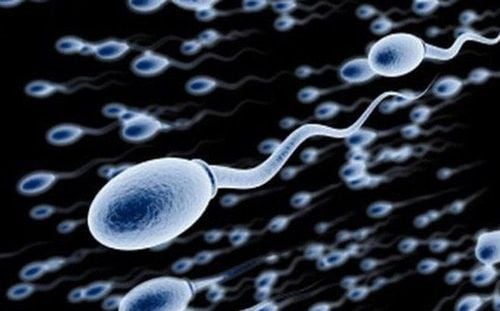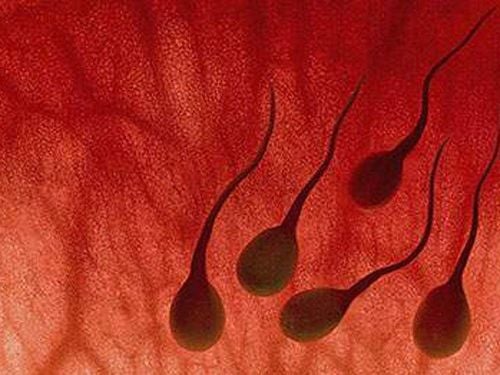The article is professionally consulted by MSc. Dr. Võ Thiện Ngôn - Urologist, Vinmec International General Hospital Da Nang.
Premature ejaculation is a condition in men where the body loses control when the penis is inserted into the vagina. Whether premature ejaculation affects fertility is a question that arises quite often in practice. In mild cases, pregnancy is still possible, but there are also instances where premature ejaculation reduces fertility.
1. What is Premature Ejaculation in Men?
The ejaculation process consists of two stages: emission and expulsion:
Emission stage: This is when semen is released. At this point, the pressure in the prostatic urethra of the male is so high that secretions from the ducts, seminal vesicles, and sperm accumulated in the epididymis move up through the vas deferens. This causes the vas deferens, seminal vesicles, and prostate gland to contract.
Expulsion stage: This is when ejaculation occurs, involving the coordinated contraction of the perineal muscles, prostate gland, seminal vesicles, and vas deferens, expelling the fluid from the prostatic urethra.
Disorders in this ejaculation process include: emission disorders, lack of emission, insufficient sperm and semen for ejaculation, no semen (also known as dry orgasm), premature ejaculation, delayed ejaculation, no ejaculation, retrograde ejaculation, and painful ejaculation. Among these, ejaculation disorders that affect fertility include dry orgasm, delayed ejaculation, no ejaculation, and retrograde ejaculation. However, premature ejaculation does not affect the ability to conceive because sperm is still produced and its quality remains normal, allowing for fertilization.
Premature ejaculation is a common sexual dysfunction in men, especially in adolescents or men who are new to sexual activity and frequently masturbate. The causes of premature ejaculation include:
Medical conditions: Diseases such as cardiovascular issues, joint problems, diabetes, obesity, etc., in middle-aged men can reduce sexual desire, leading to premature ejaculation. Other medical causes include phimosis, paraphimosis, or elongated foreskin;
Psychological factors: Prolonged stress, fatigue, and anxiety negatively affect a man's physiology, causing premature ejaculation;
Frequent masturbation: Masturbation is a common habit in men, but if it occurs over a long period, it can harm sexual health, leading to premature ejaculation, nocturnal emissions, wet dreams, and reduced sexual desire;
Use of stimulants: The use of alcohol, tobacco, and other stimulants can cause premature ejaculation.

2. Does Premature Ejaculation Affect Fertility?
Since premature ejaculation is a fairly common phen omenon in men, the question often arises whether it affects the ability to have children. As mentioned above, premature ejaculation does not significantly affect fertility and conception is still possible. However, there are cases where premature ejaculation can reduce fertility.
More specifically, the impacts of premature ejaculation on sexual life are as follows:
- Premature ejaculation reduces sexual desire, which is the excitement during sexual activities. Additionally, it indirectly affects the ability to conceive;
- Prolonged premature ejaculation affects the ejaculation reflex in men. As a result, the quality and quantity of sperm decrease, also affecting the ability to have children;
- Most seriously, premature ejaculation can cause infertility by preventing sperm and egg from meeting, especially in cases where ejaculation occurs before penetration.
3. Ways to Prevent Premature Ejaculation

Since premature ejaculation is not a dangerous condition, it can be treated. Therefore, when experiencing symptoms of premature ejaculation, men should seek medical facilities for proper diagnosis and treatment. Ways to prevent premature ejaculation include:
- Psychotherapy: Conducted by a psychologist with the cooperation of the partner, often applied to men with premature ejaculation due to lack of sexual experience, frequent stress, or masturbation;
- Medication: Medications used to treat premature ejaculation must be prescribed by a doctor and should not be used arbitrarily as they can cause dangerous complications;
- Surgery: This is the last resort when other methods are ineffective. The surgery involves cutting the peripheral sensory nerves at the tip of the penis to reduce sensitivity. However, this method also has many limitations, such as reduced excitement and loss of pleasure.
To prevent premature ejaculation from affecting fertility, men should proactively consult a specialist for treatment advice. Do not hide the condition due to feelings of inferiority or embarrassment, as it can negatively impact sexual life and fertility.
To arrange an appointment, please call HOTLINE or make your reservation directly HERE. You may also download the MyVinmec app to schedule appointments faster and manage your reservations more conveniently.









